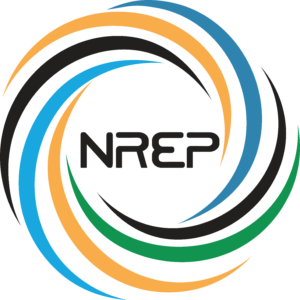NREP Highlights
The 5th edition of the Annual Renewable Energy Conference & Expo, a premier event fostering innovation and collaboration in the renewable energy sector.
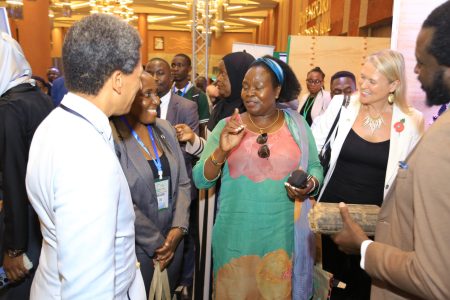
The Ministry of Energy and Mineral Development, in partnership with the National Renewable Energy Platform, is excited to announce the Renewable Energy Conference & EXPO (REC25 & EXPO) from 20th October to the 22nd of October, 2025, Kampala Serena Hotel, Uganda. This event will be a pivotal moment in our journey towards a sustainable energy future, and we invite you to be part of it.
Join us as we bring together experts, innovators, policymakers, and stakeholders to discuss and advance the clean energy agenda. Your participation is crucial to the success of this conference, and we look forward to your invaluable contributions.
Luwero Diocese Launches Clean Cooking Programme to Tackle Energy and Health Challenges
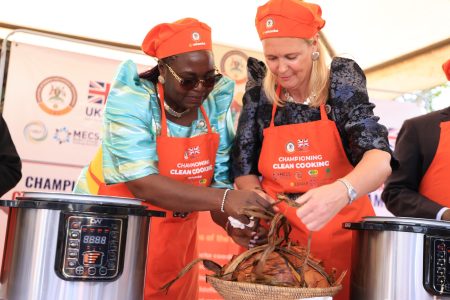
The Church of Uganda’s St. Francis Church in Nakasongola Archdeaconry hosted the launch of a clean cooking programme for Luwero Diocese, a major step toward promoting affordable, safe, and environmentally friendly cooking solutions. The initiative, held on Sunday 28th September 2025 sought to shift households away from firewood and charcoal, reducing indoor air pollution, curbing deforestation, and easing the financial strain of traditional fuels. The colourful ceremony was presided over by the Bishop of Luwero Diocese, Rt. Rev. Wilson Kisekka, with the Minister for Energy and Mineral Development, Hon. Ruth Nankabirwa, as the chief guest. The British High Commissioner to Uganda, H.E. Elisa Chesney, also graced the event, reaffirming the UK’s commitment to supporting Uganda’s clean energy transition. Officials emphasized that the programme will especially benefit women and children, who are most vulnerable to health risks from smoke-filled kitchens, while also contributing to environmental protection and sustainable development.
Spotlight Feature: EcoFlames Digest – September 2025
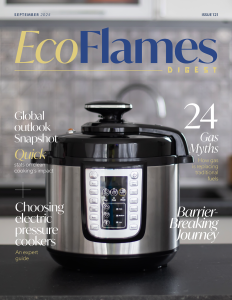
The September issue of the EcoFlames Digest is now available, shining a light on how clean cooking solutions are transforming homes, communities, and Uganda’s energy landscape.
This edition features:
Uganda’s most ambitious clean cooking rollout in Africa, led by MEMD with support from partners.
Inspiring human stories, such as Ruth Komuntale’s barrier-breaking journey and Irene Ayo’s mission to ensure refugee women never risk their lives just to cook a meal.
The untold story of UgaStove, a pioneer in efficient stove design that has grown into a globally recognized clean energy enterprise.
Expert insights, including practical guides on LPG adoption, electric pressure cookers, and solar-powered solutions.
Regional outlooks showing the financing needs and opportunities to achieve universal access to clean cooking by 2040.
At NREP, we believe clean cooking is more than just a household convenience — it is about public health, gender equality, climate resilience, and economic empowerment.
Transforming Ntungamo with Clean Cooking: A Recap of the BCCeC Outreach Campaign
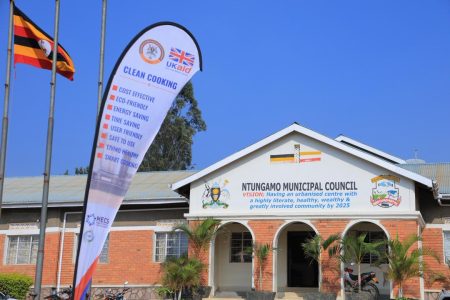
The Ntungamo BCCeC Outreach Campaign reflects NREP’s commitment to empowering communities with accessible, health-focused, and environmentally friendly cooking solutions.
IGANGA CLEAN COOKING AWARENRESS OUTREACH
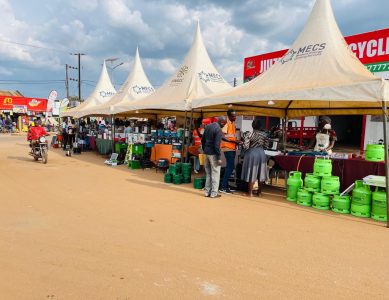
he Iganga outreach reinforced the need for continuous sensitization and collaboration with key institutions. Participants recognized the cost savings, efficiency, and health benefits of clean cooking technologies, while also identifying barriers that require strategic intervention.
MBARARA CLEAN COOKING CHAMPIONS TRAINING
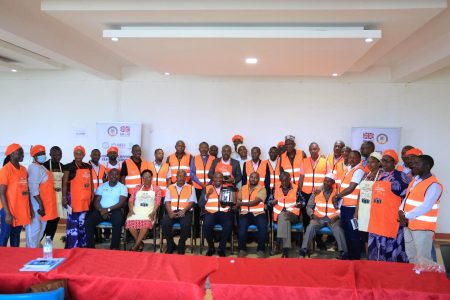
The Clean Cooking Champions engagement showcased the power of storytelling, peer influence, and community-driven outreach in promoting Clean Cooking, with a focus on Electric Cooking (EPCs). Champions shared personal experiences highlighting the health, economic, and time-saving benefits of clean cooking. While challenges such as high costs, misinformation, and limited awareness persist, practical solutions like group purchases, live demonstrations, and localized messaging are proving effective. With the backing of the local government, particularly from the RCC’s office, localized messages and strengthened commitment, champions are equipped to inspire change in their communities.
From lakeside views to lasting change – Entebbe is redefining progress through clean cooking
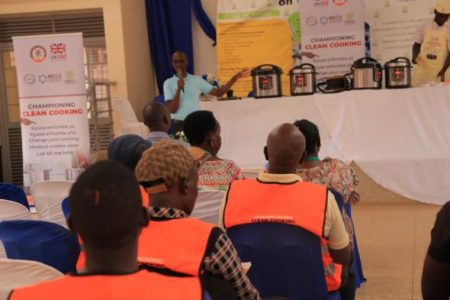
The clean cooking campaign in Entebbe Municipality was a strategic and timely intervention that aligned with Uganda’s broader vision for sustainable energy access and climate-resilient communities. By connecting residents with practical, smoke-free cooking solutions and relevant technical knowledge, the campaign laid strong groundwork for behavioral change and technology adoption.
RWAMWANJA REFUGEE SETTLEMENT CLEAN COOKING OUTREACH
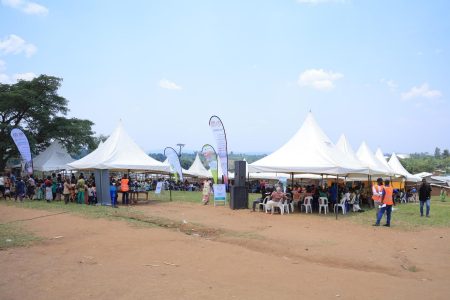
The BCCeC outreach in Kaihora B, Rwamwanja Refugee Settlement successfully brought together residents, community leaders and stakeholders from among the organizations operating within the settlement to engage in practical demonstrations, open dialogue and shared learning on clean cooking solutions. Through the skits, hands-on-sessions, stakeholder remarks, and active participation from the community, both the opportunities and barriers to adoption were highlighted, and existing solutions presented while unique ones were documented for deliberation and action.
RE Sector Highlights Around the Region and Globe
1. Uganda: Green light for solar energy + battery storage pro

The Government of Uganda has issued a Gazetted Policy Direction authorising the development of a 100-megawatt- peak (MWp) solar PV plant with 250 megawatt-hours (MWh) of battery energy storage in Kapeeka Sub-County, Nakaseke District. The project will be delivered by US-based Energy America, with its East Africa subsidiary, EA Astrovolt, leading development and execution. Issued under Section 16 of the Electricity Act, the directive marks the start of Phase I in a national programme to deploy more than 1GW of solar-plus-storage capacity.
2. Uganda to Borrow $358 Million for Power Line to South Sudan
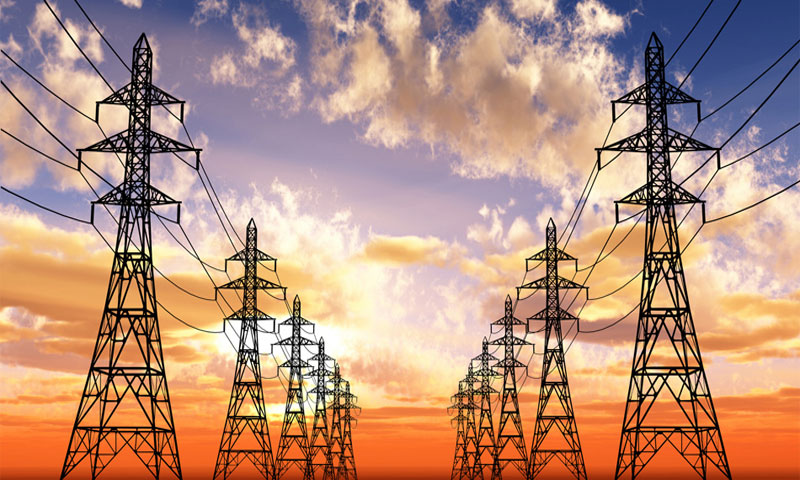
Uganda plans to borrow $358 million from regional and private lenders to finance various projects, including a power grid interconnection with neighbouring South Sudan, according to a finance ministry official. The credit will be sourced from the African Development Fund, an arm of the African Development Bank, the Arab Bank for Development in Africa, and Standard Chartered Bank, junior finance minister, Henry Musasizi, said while presenting the plan in parliament late on Tuesday. Deputy House Speaker Thomas Tayebwa referred the request to a House committee, comprising of both ruling party and opposition lawmakers, that will study it and make a report before the full House debates and takes a vote on the request.
3. Uganda Development Bank plans to raise $500 million for four-year plan
State-owned Uganda Development Bank plans to raise $500 million in debt from international capital markets to support a four-year plan to boost lending to the mining, energy and manufacturing sectors, a senior executive said on Monday. UDB's Treasury head Thaib Lubega told Reuters by telephone that the lender intends to raise the funds in tranches, with the first issuance of $100 million to $150 million potentially coming as early as next year. The bank, which holds assets worth about 1.82 trillion Ugandan shillings ($520 million), is working with Paris-based Global Sovereign Advisory to determine the most suitable debt instrument. It is considering options such as a green bond or a syndicated loan, Lubega said.
4. From Smoke to Solutions: Why Clean Cooking in Africa’s Institutions Could Spark the Continent’s Energy Transformation
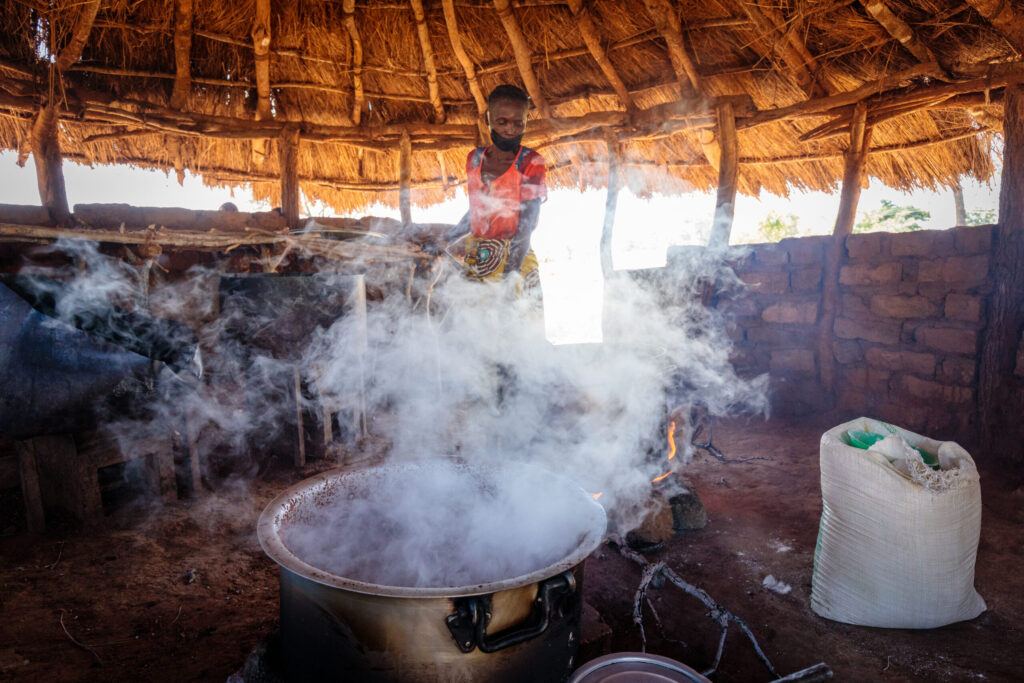
Walk into a school kitchen in rural Kenya, or a hospital kitchen in Uganda, or a prison kitchen in Nigeria, and you’ll likely find the same scene: giant pots perched on blackened stoves, logs stacked high, and smoke hanging thick in the air. It’s the daily backdrop to millions of meals that keep pupils learning, patients healing, and inmates fed. These kitchens are the beating heart of public service. They keep education systems functioning, hospitals running, and entire communities steady. But the fuel behind them is a quiet saboteur, and firewood and charcoal, cheap in the short term, are costing Africa dearly.
5. Embracing Climate-Smart Growth is a Net Win for Uganda
"Uganda faces a critical moment as the 14th most climate-vulnerable country," said Qimiao Fan, World Bank Division Director for Kenya, Rwanda, Somalia, and Uganda. "Climate action is not only essential but offers an opportunity to redefine the country's development trajectory. The CCDR provides a roadmap for integrating climate consideration into national policies and investments, ensuring that growth is sustainable, inclusive, and climate resilient.” To achieve climate-positive growth, the report recommends four multisectoral intervention packages, backed by economy-wide measures and strong private sector engagement.
6. How bricks, charcoal are burning Bukedi’s future

In many parts of Bukedi Sub-region in eastern Uganda, the rising smoke from countless brick kilns has become a familiar sight. What was once a landscape of lush greenery and thick tree cover is steadily turning into bare patches of land dotted with mounds of freshly moulded clay. Brick making and charcoal burning, while offering a lifeline for thousands of households searching for income, are also fueling a crisis that may leave the region barren deforestation. On the outskirts of Budaka Town Council, groups of young men dig deep into the earth, moulding clay into neat rows of raw bricks. Once dried by the sun, the bricks are stacked into towering kilns. Beside them lie piles of freshly cut firewood harvested from nearby forests, waiting to be fed into the "flames. Each kiln requires hundreds of logs to burn continuously for days until the bricks harden.
REC25 & EXPO
Discover limitless potential in renewable energy at REC25 & EXPO. Secure your spot by registering today
Upcoming Events
• Spark + Africa Fund
From microfinance institutions in rural Benin, to stove manufacturing companies in Zambia, to vertically-integrated fuel utilities in Kenya, we offer a range of financing solutions to companies throughout the supply chains of numerous clean and modern cooking fuels and appliances. The common thread is that companies play a role in scaling up the use of alternatives to dirty and unsustainable cooking practices in Africa.
Companies that meet the following criteria should reach out, including those that are:
Engaging in cooking solutions directly e.g. as a product designer, manufacturer, distributor, retailer, consumer finance provider, technology provider, etc.
- Engaging with potential consumers of cooking solutions e.g. as an off-grid solar utility, FMCG distributor or retailer, microfinance institution, mini-grid operator, etc.
- Operating in one or more countries in Sub-Saharan Africa.
Post-revenue with demonstrated proof-of-concept.
Be Where Innovation Meets Impact
Join us at upcoming NREP events designed to spark ideas, foster partnerships, and shape a sustainable future.
Funding Opportunities
Africa mini-grids acceleration programme
The Africa Mini-Grid Market Acceleration Programme (AMAP) is a technical assistance (TA) programme funded and implemented by the African Development Bank Sustainable Energy Fund for Africa (SEFA) to expand private sector investment in Green Mini-Grids on the African continent. AMAP 1.0 had a budget of USD 7 million.
GET.invest Finance Advisory
As the Team Europe One Stop Shop, GET.invest provides flexible advisory services, supporting your project or company to become investment ready and access financing that aligns with your needs.
Digital Energy Challenge
The aim of the Digital Energy Challenge is to support the development of innovative solutions for increased energy access, to facilitate the integration of renewable energies and to improve energy operators’ performance.
D-Prize Challenge
Startup grants of up to $20,000 are available for entrepreneurs launching new organizations. The goal is to increase the number of social impact ventures—whether for-profit, NGO, or charity—focused on addressing extreme poverty in low- and middle-income countries.
OPEN Fund for Women-Led Energy Businesses
Women entrepreneurs in the energy sector can apply for up to $100,000 in investment to scale their clean energy businesses.
Spark + Africa Fund
From microfinance institutions in rural Benin, to stove manufacturing companies in Zambia, to vertically-integrated fuel utilities in Kenya, we offer a range of financing solutions to companies throughout the supply chains of numerous clean and modern cooking fuels and appliances. The common thread is that companies play a role in scaling up the use of alternatives to dirty and unsustainable cooking practices in Africa.
Productive Use Financing Facility
A program by Karlsruhe Institute of Technology (KIT) and Circle Innovation supporting GreenTech, HealthTech, AgriTech, and e-mobility start-ups with tech development, market validation, and access to Germany’s innovation ecosystem.


